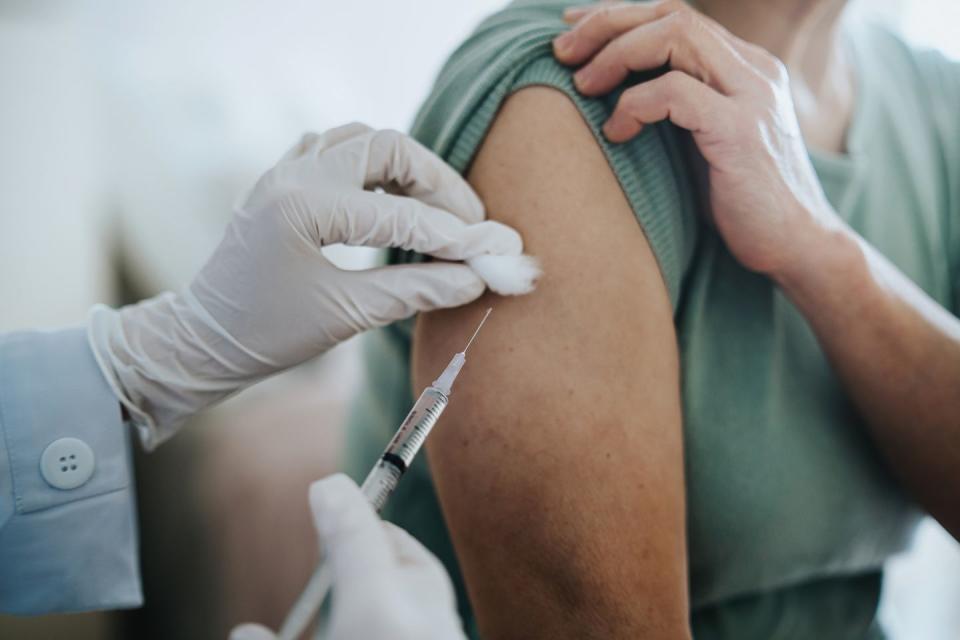8 Things to Know About Long Covid

“DO I HAVE LONG COVID?” That question has probably crossed your mind if you’re still dealing with lingering symptoms, like fatigue, brain fog, or shortness of breath, weeks or months after recovering from Covid-19.
Most people who’ve had Covid do fully recover from their infections. But as of January 2023, 11 percent of people who’ve had Covid were living with long Covid, according to the Household Pulse Survey, a partnership of the Census Bureau and the National Center for Health Statistics.
Understanding long Covid remains tricky for doctors. There’s no standard clinical definition for the condition or test to diagnose it. It can even go by different names, like post-Covid conditions, long-haul Covid, post-acute sequelae of SARS CoV-2 infection (PASC), or chronic Covid.
So what actually is long Covid? “Long Covid is basically symptoms that persist after Covid infection for an extended period of time,” says Brian Labus, Ph.D., M.P.H., assistant professor at the University of Nevada Las Vegas Department of Epidemiology and Biostatistics. “More than a month after the infection or longer, people are still sick with a variety of different symptoms.”
The issue, he says, is that long Covid itself isn’t one disease. “People have different types of symptoms that occur after Covid, and it affects people very differently.”
One piece of helpful news is that long Covid symptoms—which can vary drastically—tend to lessen over time, Labus says. Another is that more than 50 clinics have sprung up around the country to help figure out and manage long Covid.
Still, long Covid may seem like a mystery and feel incredibly frustrating if you're dealing with it. Here are eight things you should know about it now.
1. Some People Are More Likely to Get Long Covid Than Others
Anyone who’s had Covid-19 can get long Covid, but certain groups are more susceptible.
“The group at the highest risk are those that are hospitalized [with Covid] and develop severe disease,” explains Thomas Russo, M.D., professor and chief of infectious disease at the University at Buffalo Department of Medicine.

People who haven’t received a Covid vaccine are at a higher risk of contracting Covid, having a more severe case, and developing post-Covid infections, according to the Centers for Disease Control and Prevention.
It’s not a given that you’ll get long Covid if you’ve had Covid-19. Some people fully recover without lingering symptoms.
2. It Has a Wide Range of Symptoms
Hundreds of symptoms have been linked to long Covid. Dr. Russo says the symptoms that people experience and how severe they are can vary.
“For some people, it's completely debilitating,” Labus says “For others, it's a mild, lingering illness.”
The variability is likely based on genetics, the severity of a past Covid infection, and the mechanism driving those symptoms, which Dr. Russo says isn’t fully understood yet.
Common symptoms of long Covid include:
Tiredness or fatigue
Fever
Respiratory symptoms, like difficulty breathing, cough, or shortness of breath
Heart issues, like heart palpitations or chest pain
Neurological symptoms, like brain fog, headache, sleep problems, or pins-and-needles feelings
Depression or anxiety
Diarrhea or stomach pain
Joint or muscle pain
3. There’s Not a Test for Long Covid
Currently, there’s no way to test for long Covid. But Dr. Russo says scientists are working on developing one, as there are likely biomarkers suggesting that you have long Covid.
Doctors also don’t yet have specific diagnostic criteria for diagnosing long Covid, Labus says.
So physicians look at whether someone had previously had Covid-19 and if they still have signs and symptoms four weeks later (or longer) that aren’t connected to other causes.
“It's really just based on the fact that the person was sick with Covid, they're still experiencing some serious symptoms, and no matter what you call it, they're obviously not feeling well, and their doctor is working with them to try and alleviate those problems,” Labus says.
4. Long Covid Is a ‘Diagnosis of Exclusion’
Since there’s no test for long Covid or official criteria for the disease, doctors may conduct tests to rule out other health conditions.

“If non-long Covid diagnoses are excluded, then you’re left with your symptoms being most likely due to long Covid,” Dr. Russo says. “Presently, it’s a diagnosis of exclusion.”
5. A Specific Long Covid Treatment Doesn’t Exist Yet
There isn’t a medication or other treatment specifically for long Covid. For now, doctors treat the lingering symptoms or conditions that someone developed after having Covid.
“If it caused respiratory problems and people are still having trouble breathing, you would treat that to help them breathe more easily,” Labus says. “If they're having neurological problems, you would focus on that.”
6. You Should See Your Doctor for Any Post-Covid Symptoms
If your Covid symptoms stick around or you’re just not feeling well after having Covid, Dr. Russo suggests seeing your doctor to get checked out.
“We need to sort out what could be the cause of the symptoms,” he says. “This may not be long Covid. It could be something different, and it could be something that's treatable. It could be something that could be very important to go ahead and sort out.”
Once other diagnoses are excluded, and your doctor suggests that you likely have long Covid, they’ll help you manage your symptoms, Dr. Russo says.
7. There’s Only One Way to Prevent Long Covid
Not getting Covid is the only way to prevent long Covid. Getting vaccinated minimizes your risk of Covid and getting severely sick or needing to be hospitalized.
“We know that people with more severe disease are more likely to get long Covid,” Labus says. “So, even if the vaccine doesn’t keep you from getting Covid, it can keep you from being in the high-risk category for developing long Covid.”
And, if you haven’t yet gotten the latest bivalent Covid-19 vaccine booster, Dr. Russo suggests doing so as soon as you can. It includes components of the original virus and the omicron variant to offer broad protection.
It’s also likely that boosters will be needed annually, he adds.
8. Long Covid Symptoms Tend to Improve Over Time
Most people with long Covid will see their symptoms resolve or improve over time. But it depends. Symptoms can last for weeks, months, or even years.
Dr. Russo says researchers are working hard to fully understand long Covid and to develop diagnostic tests and treatments for it. But, it might take time.
“It’s a heavy lift, because the mechanisms for long Covid are going to be myriad and overlapping, and it’s not going to be absolutely straightforward,” he says. “But we’re going to make some gains.”
You Might Also Like
